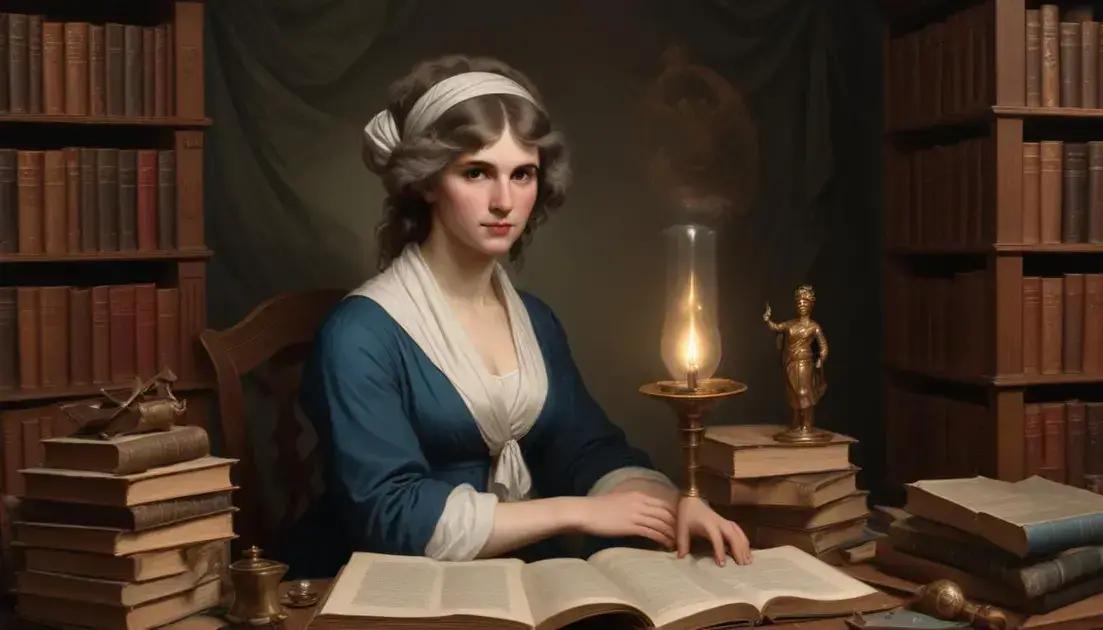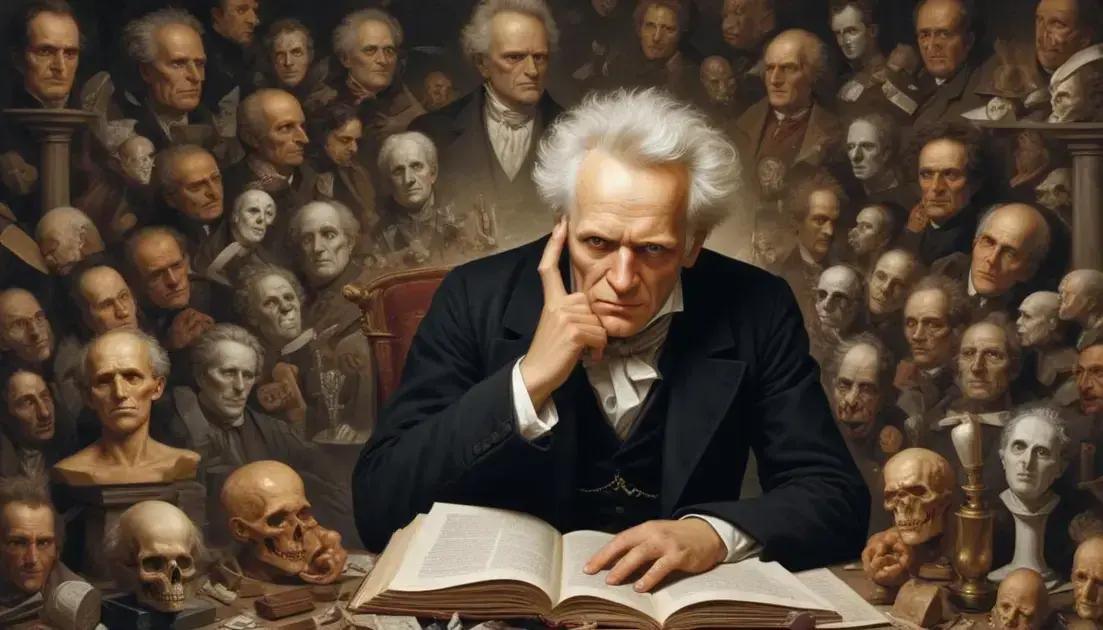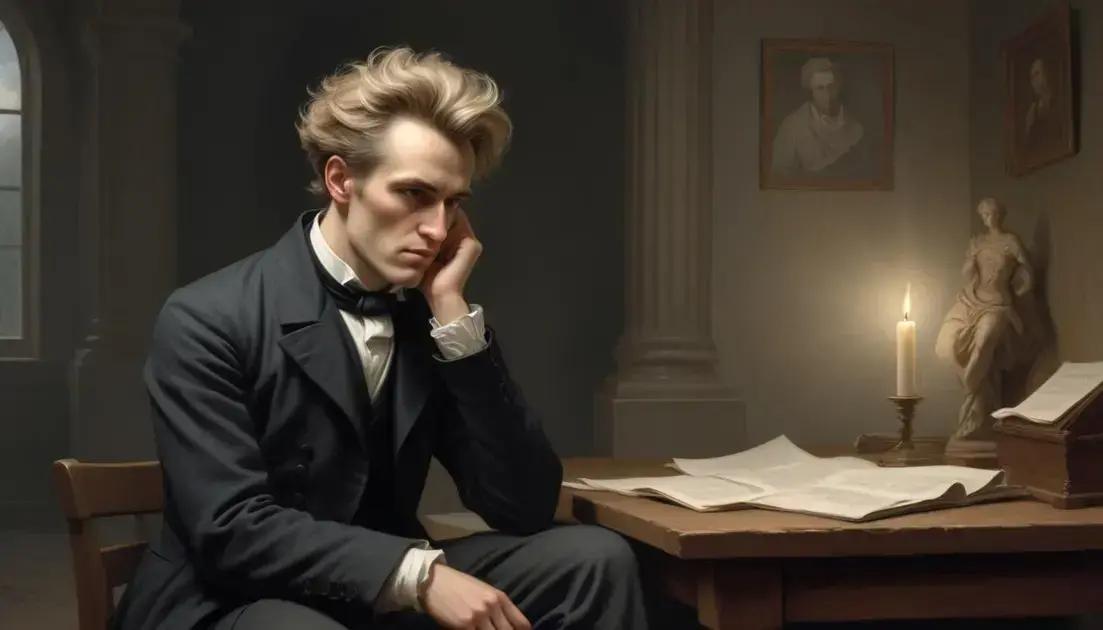
Mary Wollstonecraft: The Voice of Female Reason in the Enlightenment
Mary Wollstonecraft was a pioneering figure in women’s rights, whose influential works, particularly A Vindication of the Rights of Woman, championed gender equality and education for women. Her writings inspired future feminist movements and laid the groundwork for modern feminism by advocating for equal opportunities and challenging societal norms regarding women’s roles.
Wollstonecraft was a pioneering advocate for women’s rights, reshaping the conversation on gender equality in the Enlightenment era. Have you ever wondered how her ideas still resonate today?
Early Life
Mary Wollstonecraft was born on April 27, 1759, in Spitalfields, London. She was the second of seven children in her family. Her father was often in debt and struggled to provide for the family. This difficult situation shaped her views on social justice.
At a young age, Wollstonecraft was determined to gain independence. Her experiences at home motivated her to seek education and opportunities. She became a governess and taught children, which gave her insight into the education system.
Wollstonecraft faced many challenges, including societal expectations of women. During her early years, women were often seen as inferior to men. Yet, she remained passionate about advocating for women’s rights and education.
Her early life experiences led her to become a writer and thinker. She began to write articles advocating for women’s education and rights. Through her work, she aimed to change public perceptions of women in society.
Influence of Enlightenment
The Enlightenment was a time of new ideas and thinking. It greatly influenced Mary Wollstonecraft’s views and writings. Thinkers like John Locke and Voltaire encouraged people to question tradition and authority.
Wollstonecraft embraced these ideas. She believed that everyone should have the right to educate themselves. Education was key to achieving equality, especially for women. She felt that women should not be limited by societal norms.
During this period, the idea of reason became very important. People started to believe in logic and evidence instead of just faith. This shift helped Wollstonecraft argue that women should have the same opportunities as men.
Books by Enlightenment philosophers inspired her. She often cited these thinkers in her work. They gave her the courage to fight for women’s rights and education. Her most famous book, A Vindication of the Rights of Woman, reflects these ideas.
Through her writings, Wollstonecraft aimed to spread the Enlightenment’s message of reason and equality. She wanted to challenge the status quo and raise awareness of women’s potential.
Key Works and Ideas
Mary Wollstonecraft’s key works laid the foundation for modern feminism and women’s rights. Her most famous book, A Vindication of the Rights of Woman, was published in 1792. In this book, she argued that women should receive the same education as men.
Wollstonecraft believed that education is vital for all. She felt that when women were educated, they could contribute to society better. She also highlighted the importance of reason and rational thinking.
Another important work is A Vindication of the Rights of Men, released in 1790. In it, she defended the French Revolution and criticized traditional authority. She stood up for the rights of all individuals, not just men.
Throughout her writings, Wollstonecraft challenged societal norms. She emphasized that women should not just be wives and mothers. Instead, they should have opportunities to pursue their interests and careers.
Her ideas pushed for social change. Wollstonecraft’s works sparked conversations on gender equality that continue today. They remind us of the importance of education and personal freedom.
Impact on Feminism
Mary Wollstonecraft’s work had a huge impact on feminism. She challenged the traditional roles of women in society. Her ideas opened doors for future generations. Many consider her the first feminist.
In her book, A Vindication of the Rights of Woman, she argued for women’s education. She believed that educated women could contribute more to society. This was a radical idea at the time.
Wollstonecraft’s writings inspired later feminist movements. Activists looked to her work for guidance and motivation. Women began to demand equal rights in education, work, and politics.
Many feminists today still reference her ideas. They highlight her calls for equality and personal freedom. Her writings helped shape modern feminism’s goals.
Wollstonecraft’s legacy challenges us to continue the fight for women’s rights. Her influence reminds us of the importance of equality and education for all.
Conclusion
In conclusion, Mary Wollstonecraft’s ideas played a vital role in shaping modern feminism. Her call for education and equality still resonate today. By challenging traditional views of women, she opened doors for countless individuals seeking their rights and opportunities.
Her legacy encourages us to continue advocating for women’s rights and education. As we reflect on her impact, we can see how her work laid the groundwork for the feminist movements that followed. Understanding her contributions helps us appreciate the importance of fighting for equality for everyone.


